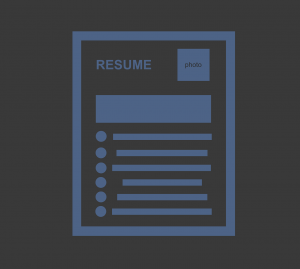
True story.
Last week at a conference, I met a young lady named Anna (of course that’s not her real name) who worked for a fast growing mid-sized corporation. Anna and I had an interesting discussion about her promising career and the topic of salary and internal promotions came up. Here’s how it went…
Wait, before we jump in, I want to make sure we’re on the same page–an internal promotion is when a worker receives a promotion at their current company.
Now that we’re clear, here’s how our conversation went.
Me: So how long have you been with your firm?
Anna: Eight years total but after three promotions, it feels like I’ve been here longer.
Me: That’s great—that means you’re kicking butt and it’s being recognized in the form of promotions. So do you believe that your pay is on par with your current role and responsibilities? (Yep, I was going somewhere with that question)
Anna: Umm, yeah, so when it comes to my pay, that’s sort of a problem.
Me: So if you don’t mind me asking, what’s the deal with your pay?
Anna: I certainly don’t mind because, at this point, it all feels like one big joke. Let’s just say that I know for sure that I’m brutally underpaid because my friend in HR told me that I am about $ 10,000 less than the next lowest paid person in my role. I also did one of those online salary comparisons to see what other local companies pay someone in my job and it was dead on with what my friend in HR gave me.
Me: Yikes, $ 10,000 in the hole? Anna, let me start by saying that you may not want to hear what I’m about to say. The unfairness in salary you’re experiencing is the norm for folks that have climbed the ladder a few times within their corporation. As soon as you told me that you received three promotions, I automatically assumed that you likely had a below-market salary. And as someone that studies worker engagement for a living, I have to ask you this, how do you feel about your employer and job?
Anna: To be completely honest with you, and I don’t know why I’m saying this to someone I’ve just met but, I absolutely DO NOT feel valued…especially after they’ve told me all of this promising stuff like how valuable I am to the firm but yet they aren’t paying me like they KNOW they should. At this point, I’ve told you a lot so now it’s your turn to speak up. How’d you know that I was underpaid before I told you that I was?
Me: Great question. Sadly, it happens so often that I named it, “The Salary Choker.” In a nutshell, it’s the idea that with each internal promotion, the corporation intentionally offers the worker a salary increase that is slightly below-market for their new role–slowly eroding away the worker’s earnings. And because most corporations base all future salary increases on the initial salary that the worker began with when they started with the organization, regardless of how big the promotion is, corporations use the current salary as their guide to determine how much of an increase the worker should receive. And if that’s not bad enough, many corporations have an unspoken and arbitrary 10% pay increase cap policy for all promotions.
Anna: Wow, that actually makes so much sense now that you explained it to me in that way. I’m recalling all of the battles I’ve had with my manager and HR to get a salary that was at least on par with what the job market was paying for my role. I was even told that the corporation had noticed that my salary was underwater but they claimed to be restricted by some “policy” that placed limits on how much they could increase my salary for promotions.
With only 20 minutes to spare before I had to leave, I explained to her exactly how “The Salary Choker” plays out for most employees.
The lesson here is that while internal promotions are great in terms of helping corporate workers advance their careers, the downside is that these same workers often get stiffed when it comes to getting the salary they deserve.
And what I cannot quite figure out is that it seems that the corporation is either oblivious to the fact that many of their top performers are underpaid. Or worse, the organization is fully aware of this and is placing calculated bets that the worker will continue to stay around despite this inequity. In my experience, I’ve worked with corporations on both sides of the coin.
Or like Anna, maybe corporate workers are of the belief that if they work even harder to get yet another promotion, their ideal salary is just on the horizon. That makes sense to me because that’s what I was banking on when I had a salary that was 30%+ below the market for my role even though I was considered a top performer within my organization. At that time in my career, it seemed to me that the salary that I deserved was a promotion away—at least that’s what I thought back then before I wised up.
The fact of the matter is that there’s something inherently wrong with the system when corporate workers that have received numerous promotions within the organization feel demotivated because of a lack of fair pay.
If this has happened to you and you’re not afraid to share your story, please leave a comment below and let me know how far below-market your salary was/is, how many promotions you received, what did you do about it (if anything), and most importantly, how did it make you feel about your corporation and your job. Who knows, your story can go a long way to helping others who may be going through the same thing.
And make sure you check out next week’s article as I reveal exactly how “The Salary Choker” works in part 2 of 2 in this series.
Until then, remember that when it comes to internal promotions, salary matters.
Business & Finance Articles on Business 2 Community(55)
Report Post






